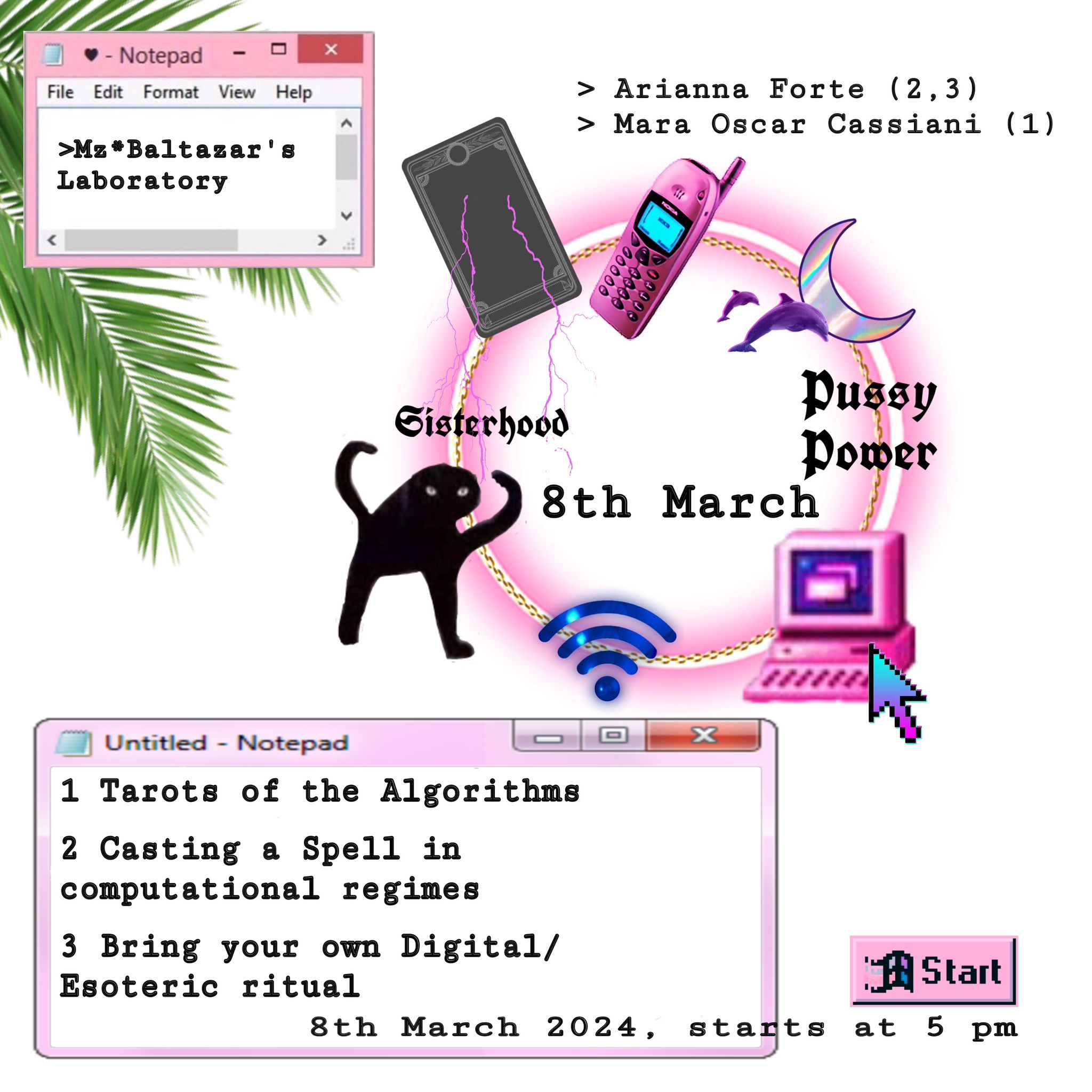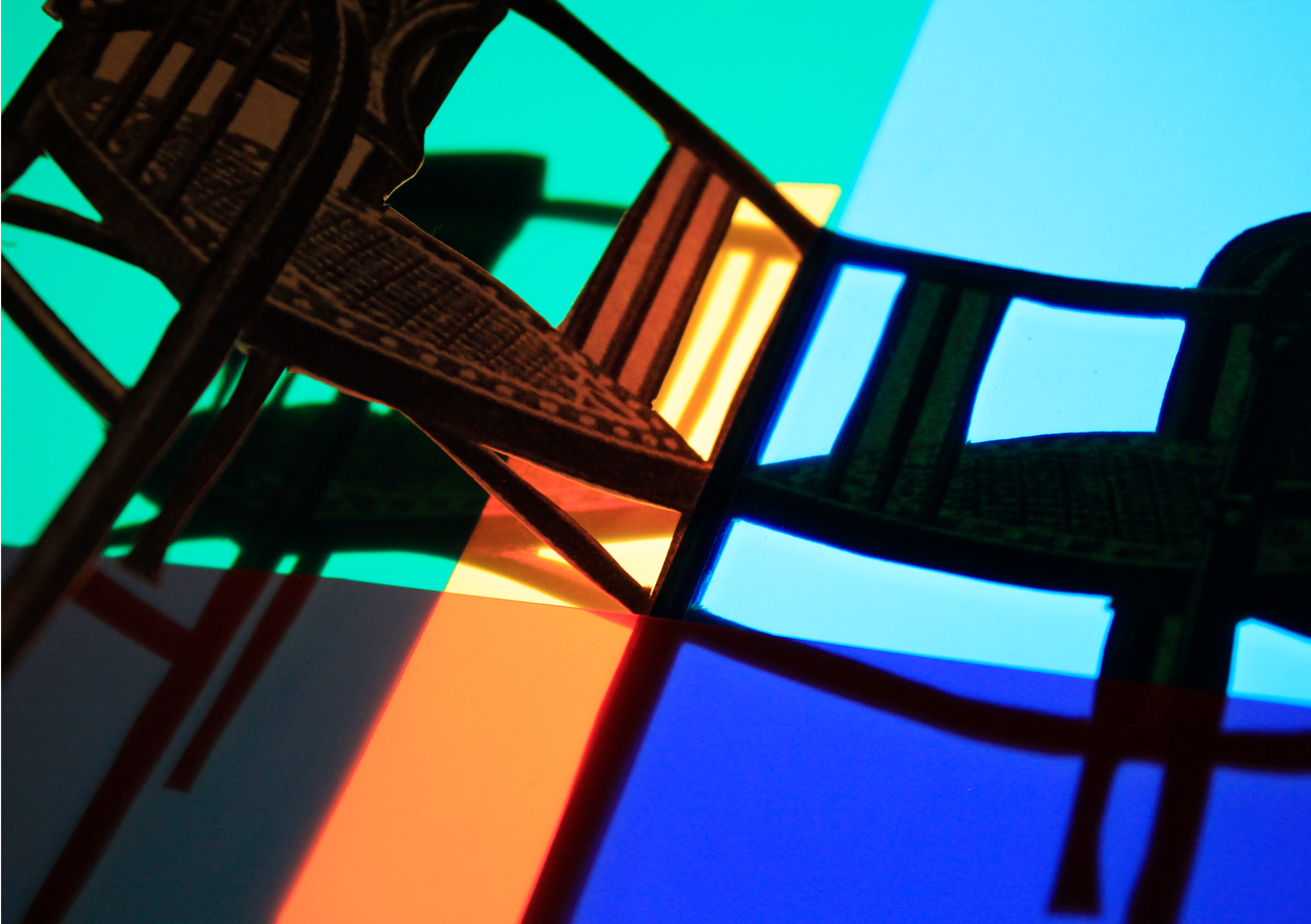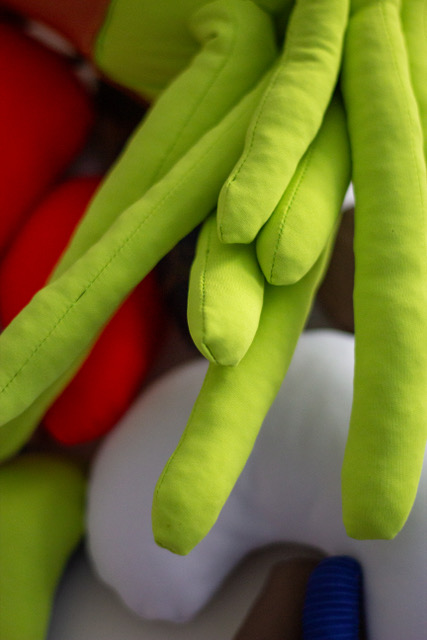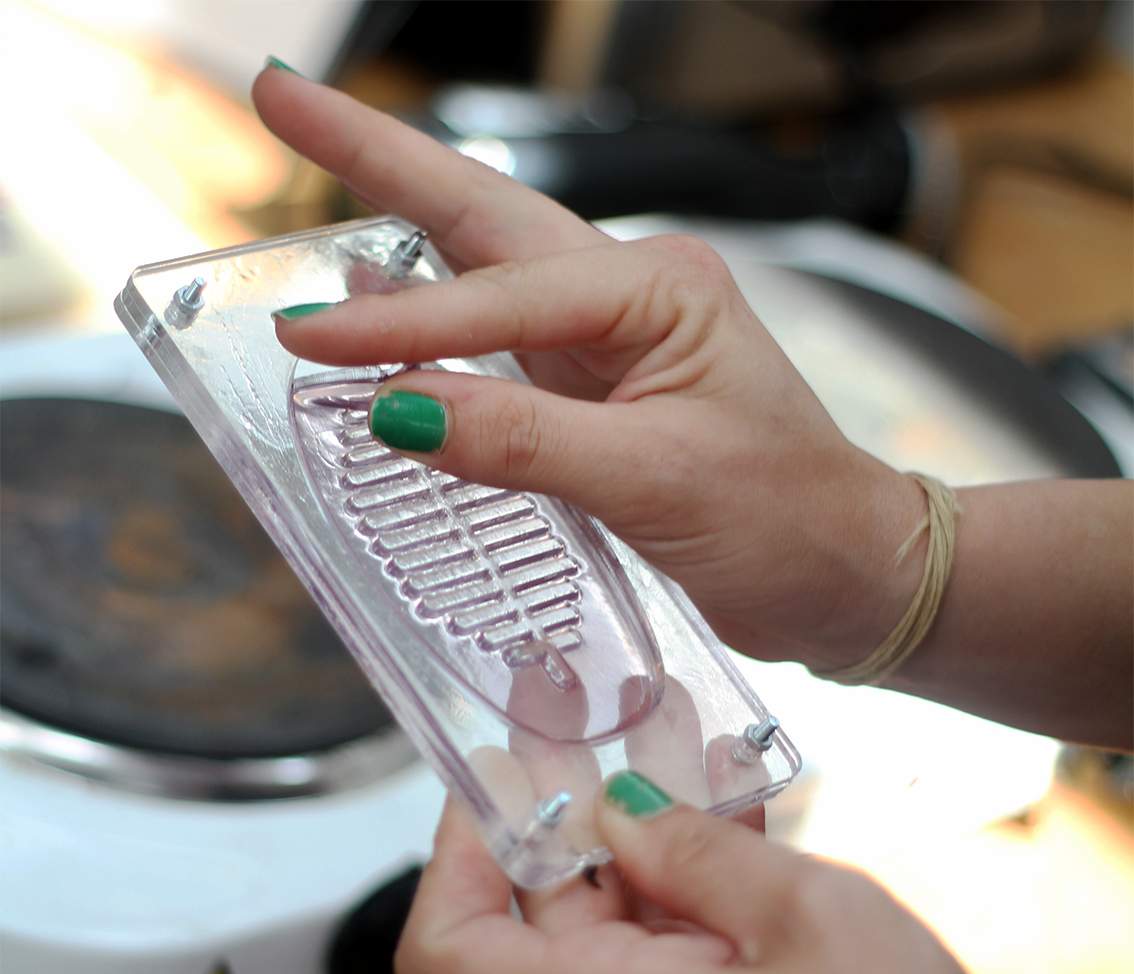Category: lecture
-

“Tarots of the Algorithms” Workshop by Mara Oscar Cassiani + “Casting a spell in computational regimes: ritual practices for a transfeminist counter-apocalypse” Lecture by Arianna Forte with Open Call
8th March 2024 Workshop Duration 60/90 minNumber of participants: 105pm Lecture Duration 45 min 7pm Tarots of the Algorithms Workshop by Mara Oscar Cassiani Expanded rituals explode from algorithmic bubbles created on the net. Algorithms become the cue for a collective and random ritual of users: fragments of belonging, but also unconscious carriers of signifiers…












